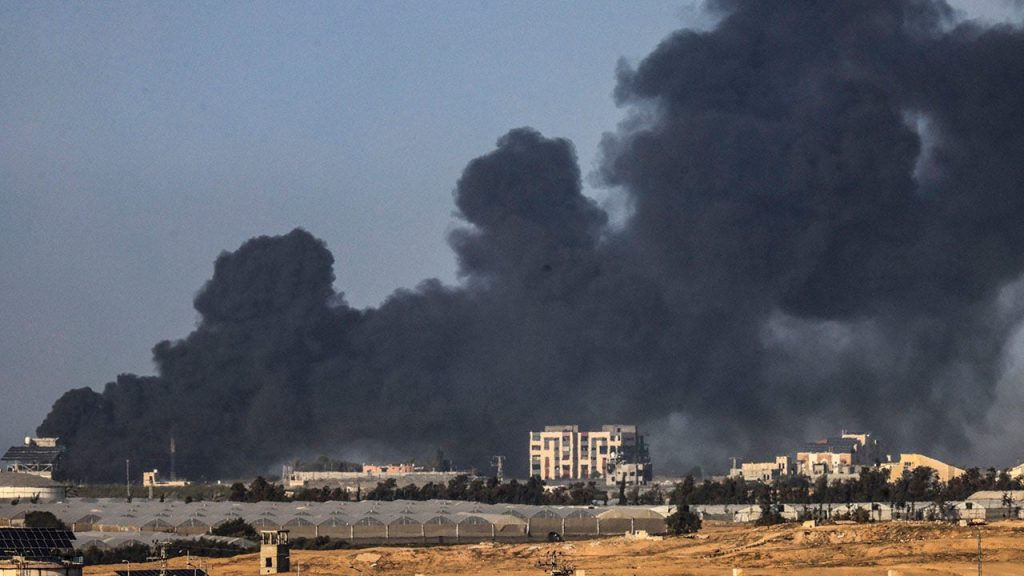The Biden administration recently authorized the transfer of billions of dollars in bombs and fighter jets to Israel, despite concerns in Washington about a potential military operation in southern Gaza. The weapons package includes bombs of varying sizes, and the State Department mentioned that fulfilling this authorization can lead to numerous individual Foreign Military Sales cases over time. The White House and the Pentagon have yet to comment on this decision. Gen. Charles Q. Brown Jr., chairman of the Joint Chiefs of Staff, noted that Israel has not received all the military arms it requested as it continues its conflict with Hamas.
As the Biden administration expresses worries about Israel’s handling of the ongoing conflict, which has resulted in numerous casualties and displacements in Gaza, the U.S. continues to support Israel’s right to defend itself. Some Democrats have urged Biden to withhold aid unless Israel commits to measures to limit civilian casualties in southern Gaza. This has led to tension in U.S.-Israeli relations, with Israeli Prime Minister Benjamin Netanyahu canceling a delegation’s visit to Washington after the U.S. declined to veto a U.N. Security Council resolution calling for a temporary cease-fire and the release of hostages in Gaza, without condemning Hamas.
Progressives critical of Biden’s support for Israel have demonstrated their opposition to him, with protesters gathering outside a recent fundraiser in New York City, calling for an end to aid to Israel. Inside the venue, protesters interrupted the event. The Biden administration has reiterated its stance of not conditioning aid to Israel, despite growing concerns over Israeli actions in Gaza. Some officials have noted that Israel has not received all the military support it requested, as the conflict persists.
The White House’s decision to continue supporting Israel’s right to self-defense while still expressing concerns about civilian casualties in Gaza has led to a rift in U.S.-Israeli relations. Some Democrats are calling for aid to be withheld unless Israel takes steps to minimize civilian harm in Gaza. Israeli Prime Minister Netanyahu’s cancellation of a planned visit to Washington in response to the U.S. not vetoing a U.N. resolution on the conflict underlines the strain in relations between the two countries.
The authorization of billions in weapons transfer to Israel by the Biden administration has raised questions and sparked criticism from some Democrats and progressives. Protests against U.S. support for Israel have taken place, with calls for an end to military aid. The ongoing conflict in Gaza and concerns about civilian casualties have further complicated the relationship between the U.S. and Israel, with differences in approaches to the situation causing tension between the two allies. The Biden administration continues to stand by Israel’s right to self-defense, while also urging measures to limit harm to civilians in Gaza.


